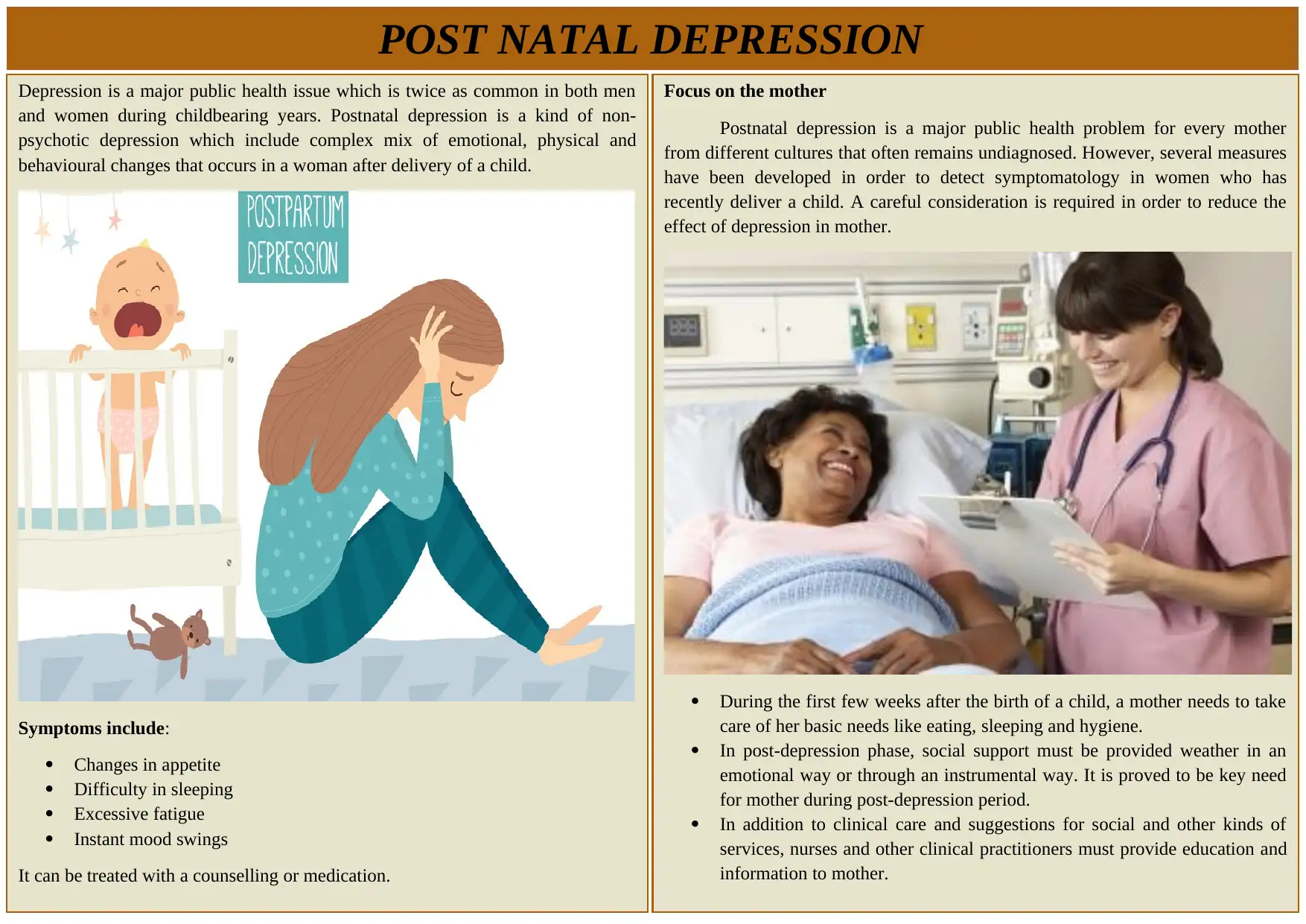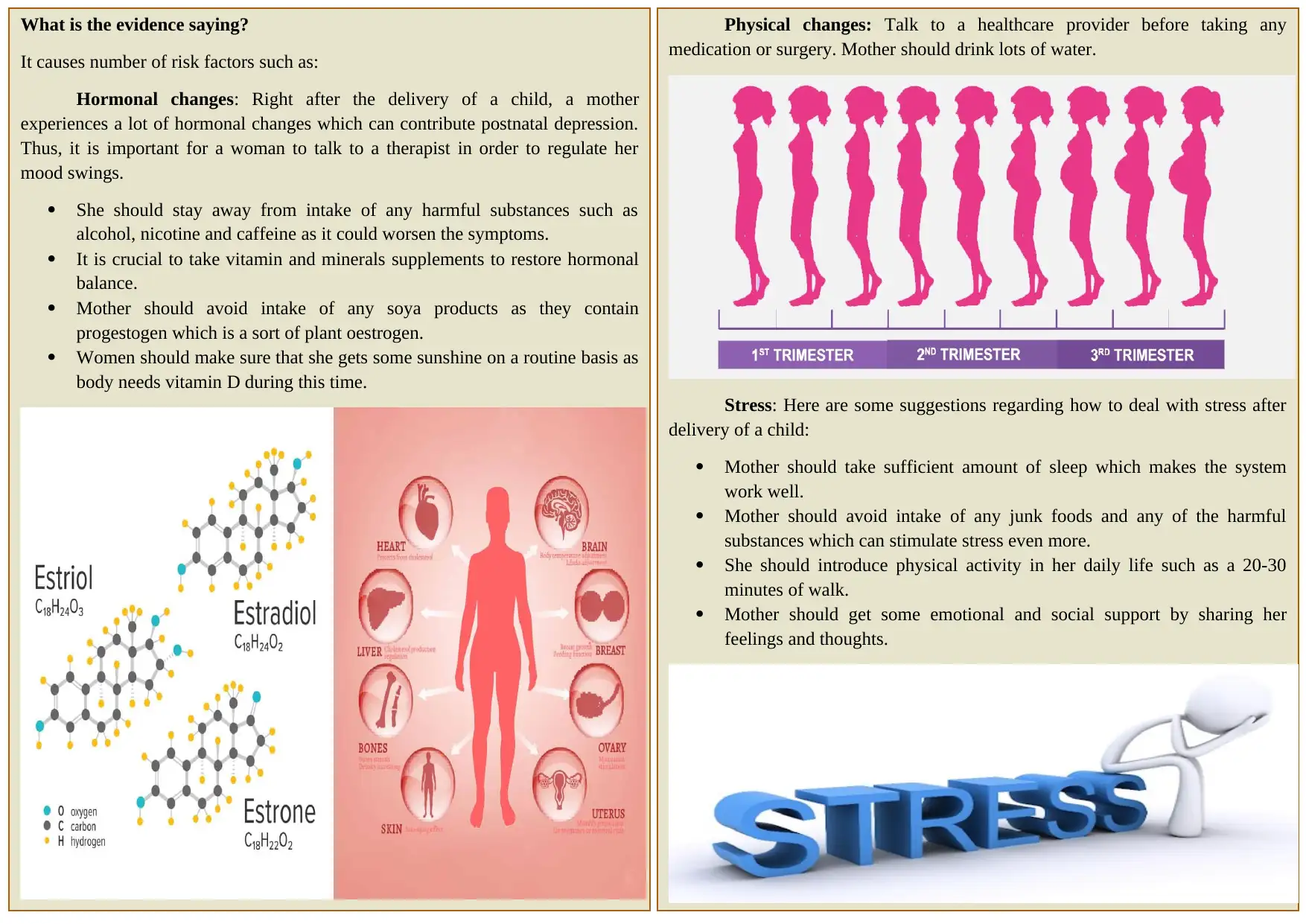A Report on Postnatal Depression: Causes, Symptoms, and Treatments
VerifiedAdded on 2023/01/13
|2
|491
|32
Report
AI Summary
This report provides an overview of postnatal depression, a significant public health concern affecting mothers. It details the symptoms, including changes in appetite, sleep disturbances, mood swings, and fatigue. The report explores the causes, such as hormonal changes, physical changes, and stress, and offers suggestions for managing the condition. It emphasizes the importance of healthcare provider consultation, adequate sleep, a healthy diet, and social support. The report also touches on the role of lifestyle adjustments, such as avoiding harmful substances and incorporating physical activity, and highlights the need for emotional and social support. The report underscores the importance of professional help, including counselling and medication, and provides information on how to reduce the impact of postnatal depression. This report aims to educate and inform mothers and healthcare providers on the various facets of postnatal depression and its effective management strategies.
1 out of 2








![[object Object]](/_next/static/media/star-bottom.7253800d.svg)